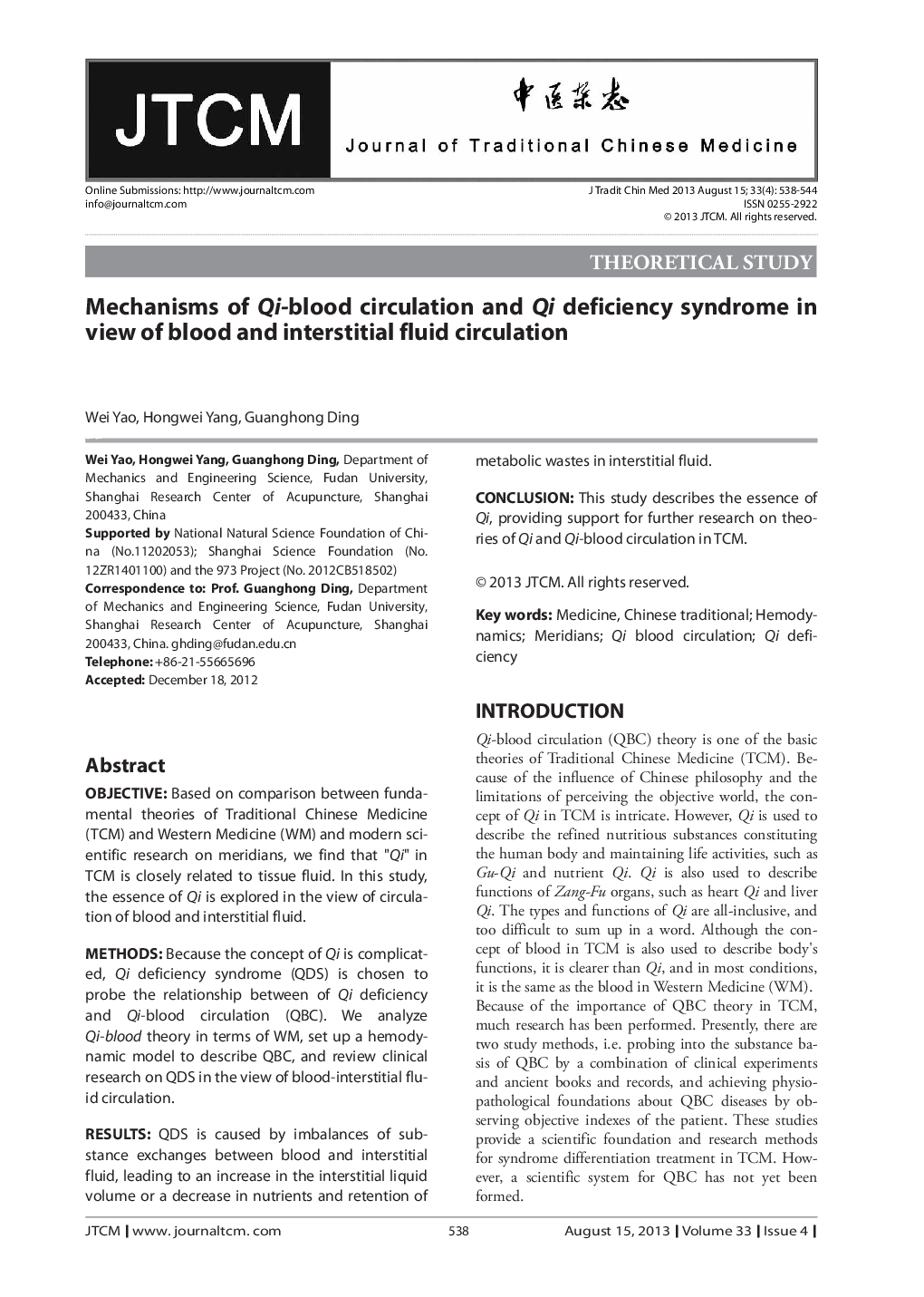| Article ID | Journal | Published Year | Pages | File Type |
|---|---|---|---|---|
| 4201496 | Journal of Traditional Chinese Medicine | 2013 | 7 Pages |
ObjectiveBased on comparison between fundamental theories of Traditional Chinese Medicine (TCM) and Western medicine (WM) and modern scientific research on meridians, we find that “Qi” in TCM is closely related to tissue fluid. In this study, the essence of Qi is explored in the view of circulation of blood and interstitial fluid.MethodsBecause the concept of Qi is complicated, Qi-deficiency syndrome (QDS) is chosen to probe the relationship between of Qi deficiency and Qi-Xue circulation (QXC). We analyze Qi-Xue theory in terms of WM, set up a hemodynamic model to describe QXC, and review clinical research on QDS in the view of blood-interstitial fluid circulation.ResultsQDS is caused by imbalances of substance exchanges between blood and interstitial fluid, leading to an increase in the interstitial liquid volume or a decrease in nutrients and retention of metabolic wastes in interstitial fluid.ConclusionThis study describes the essence of Qi, providing support for further research on theories of Qi and Qi-Xue circulation in TCM.
